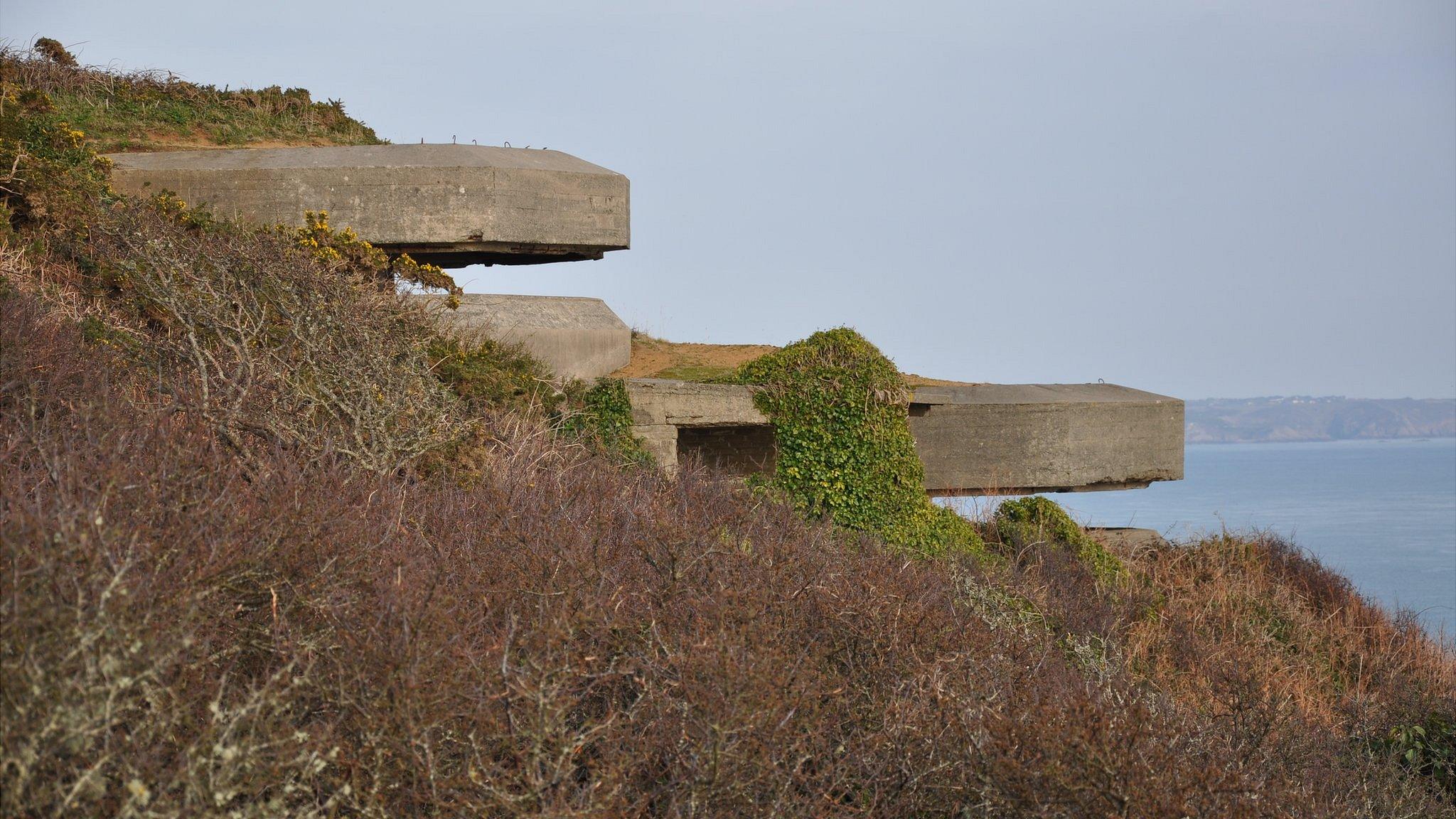Secrets of Guernsey WW2 underground newspaper revealed
- Published
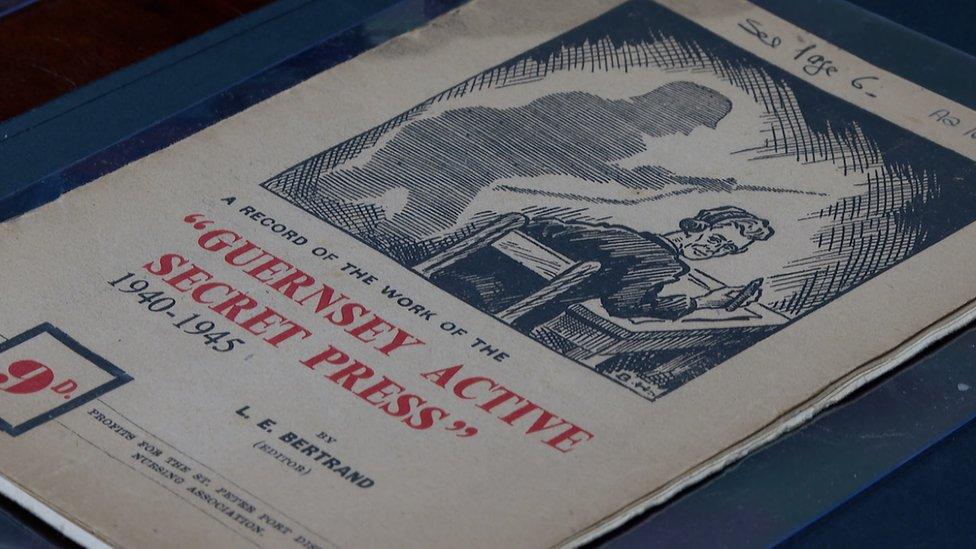
Terry Le Vallee started researching the group after discovering members of his family were involved
Information about a secret newspaper that spread British news to people living under Nazi rule in World War Two has been uncovered.
The Guernsey Active Secret Press (Gasp) distributed typed news sheets to a select group of islanders.
If discovered those involved faced deportation and imprisonment.
The group was so secretive that some of their descendants had no idea about it until a chance discovery in a loft inspired further research.
Mary Sims' parents were both involved in Gasp.
"My parents would listen to the BBC News on their crystal set, write it down in long hand and then my mother would type it up on a typewriter at the bailiff's office, where she was working," she said.
"That was how Bailiff Victor Carey got the British news."
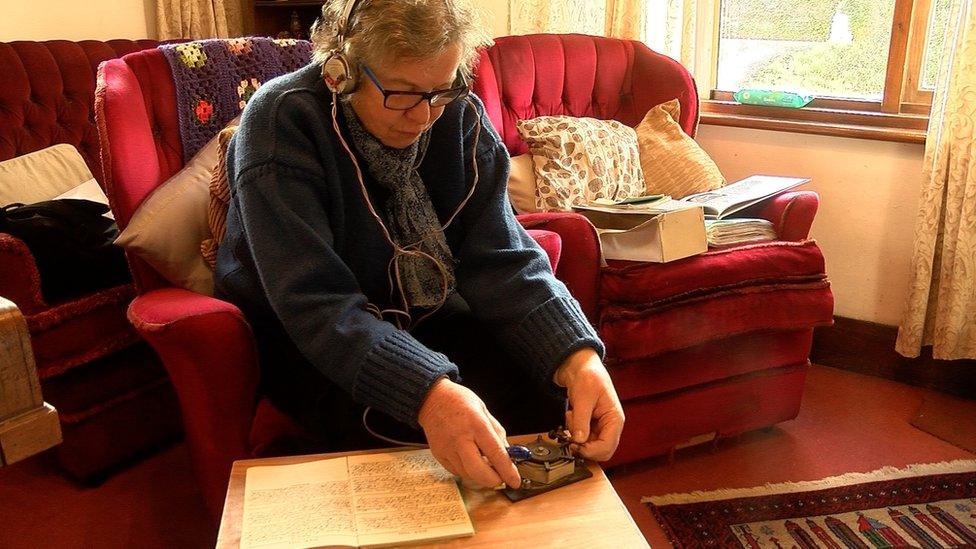
Mary Sims said she was proud of what her parents had done
Sir Victor Carey was Bailiff and Lieutenant Governor of the island during the German occupation of the Channel Island from June 1940 until May 1945.
Those involved in Gasp would have been aware of the possible dangers of being discovered by occupying Nazi forces.
Radios had been banned but some islanders ignored rules to hand them in while others built crystal sets.
The spreading of news that had not been approved by the German censor led to deportation and prison for some of those involved in the Guernsey Underground News Service (Guns), the other known secret newspaper on the island.
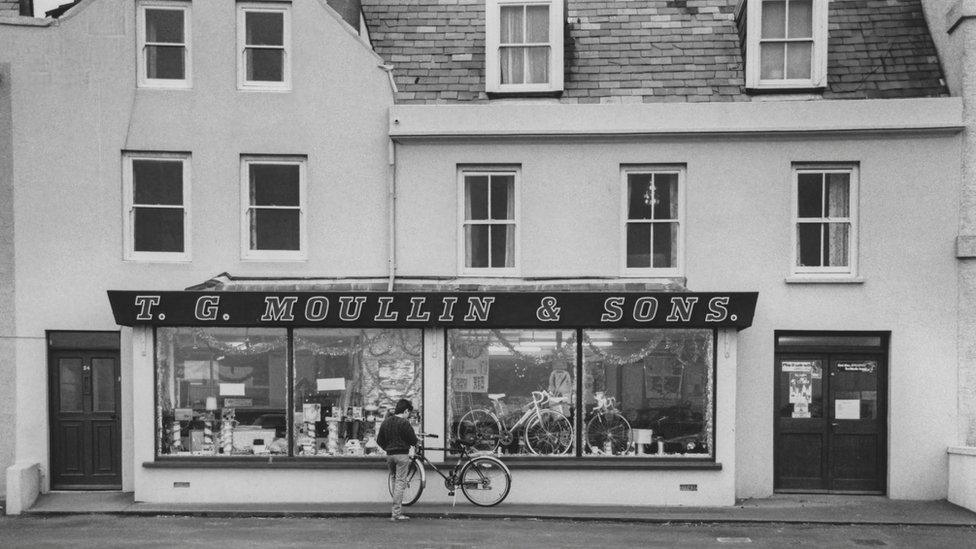
The group operated out of an office above a bike shop
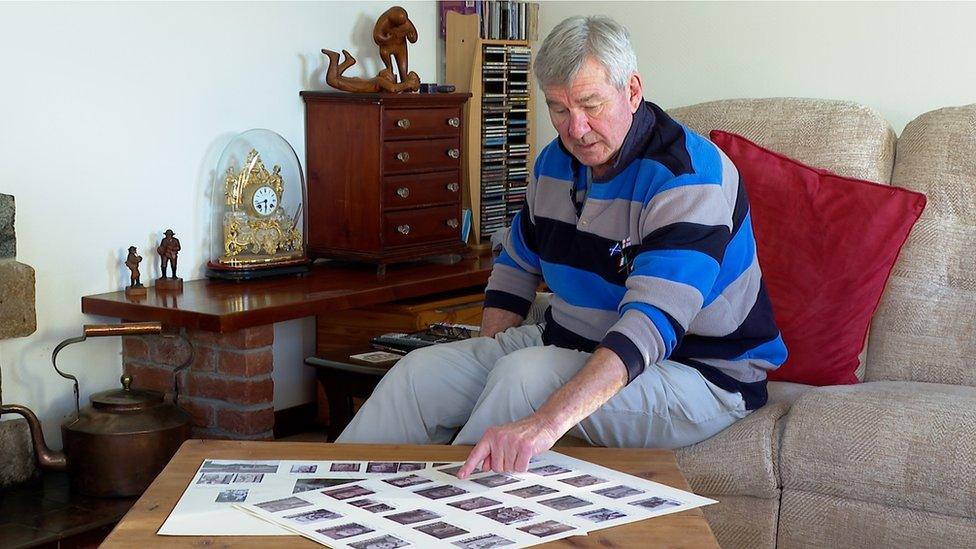
Terry La Vallee said he was amazed
Terry Le Vallee discovered his grandfather and great uncle were involved in Gasp after finding documents in his loft.
He said: "Nobody knew because these people didn't talk about it - nothing, absolutely nothing."
Terry believes that the Guernsey Active Secret Press were able to avoid detection by remaining close knit.
"Guns were too big and that was their downfall," he said.
"Gasp were producing weekly or monthly bulletins but weren't producing that many and their network was so tight and you knew who you were passing things on to. It wasn't a general distribution."
The group was mostly run out of what was a bike shop and is now a restaurant.
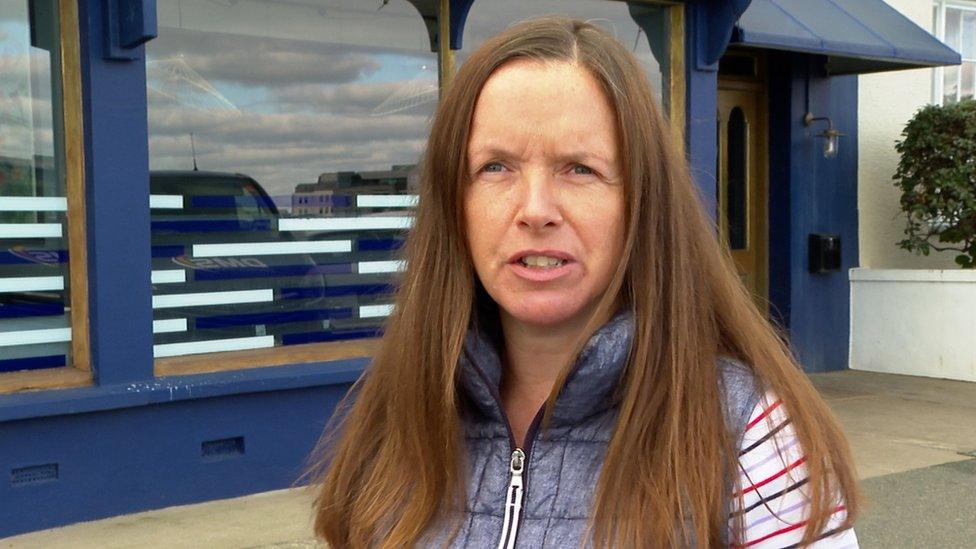
Tour guide Amanda Johns said working above a workshop hid the noise of the typewriters
Guernsey tour guide Amanda Johns has been researching Gasp and believes running it out of the business was a good cover.
She said: "It would have been very innocuous and nobody would have known what was going on upstairs.
"Whilst they were banging away on the typewriter upstairs, they would be making noise repairing the bikes downstairs so that when the German officers came in, they wouldn't hear the typewriters."
It is believed about 35 islanders were involved in the work, with many more distributing the news sheets.

Follow BBC Guernsey on Twitter, external and Facebook, external. Send your story ideas to channel.islands@bbc.co.uk, external.
Related topics
- Published10 March 2021
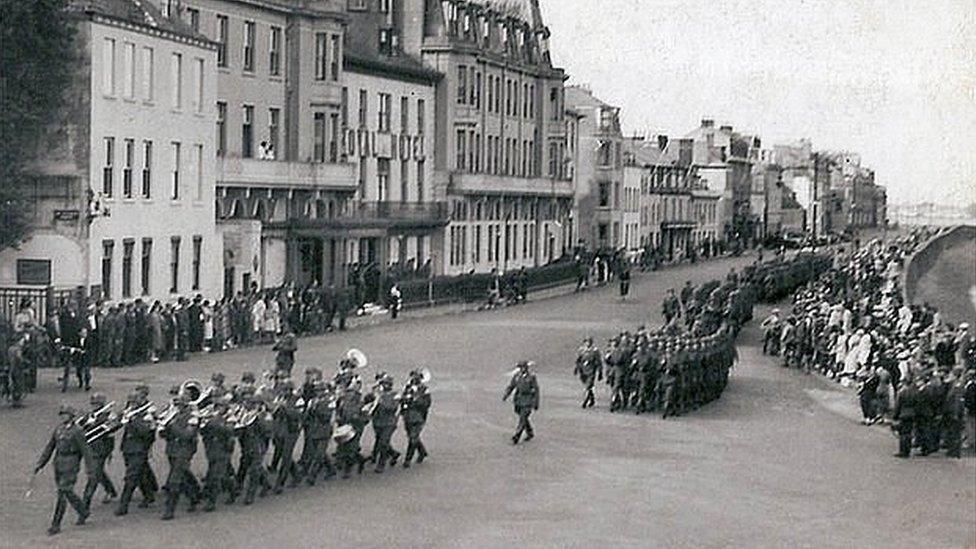
- Published9 May 2021
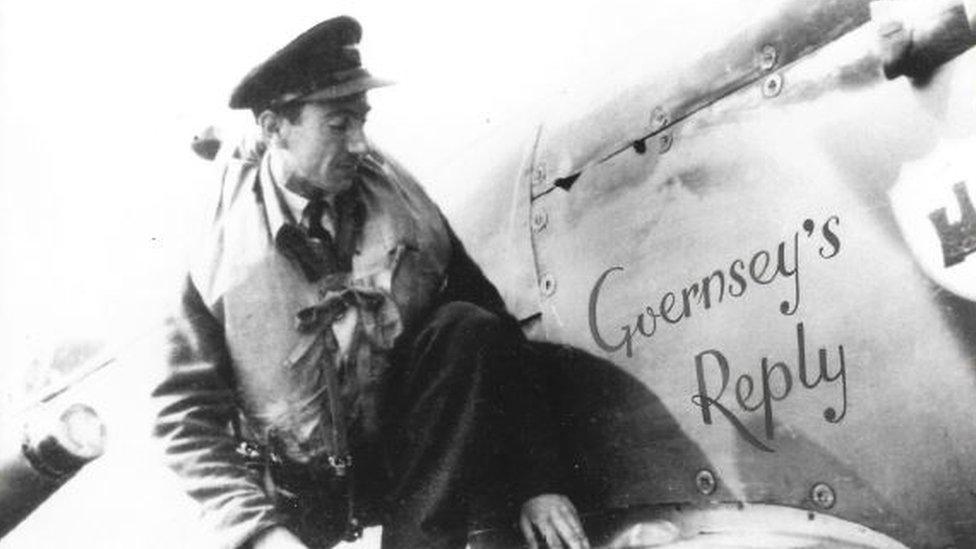
- Published26 February 2021
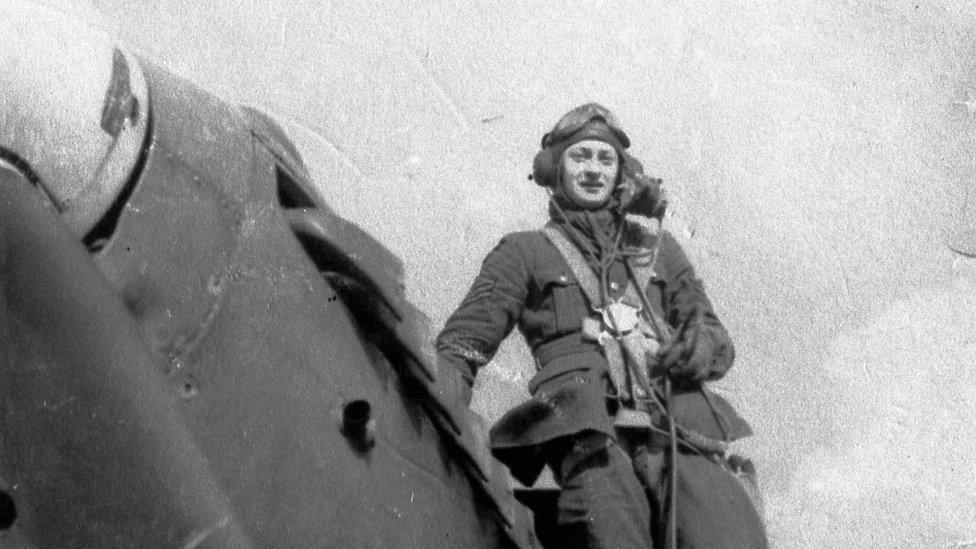
- Published8 May 2020
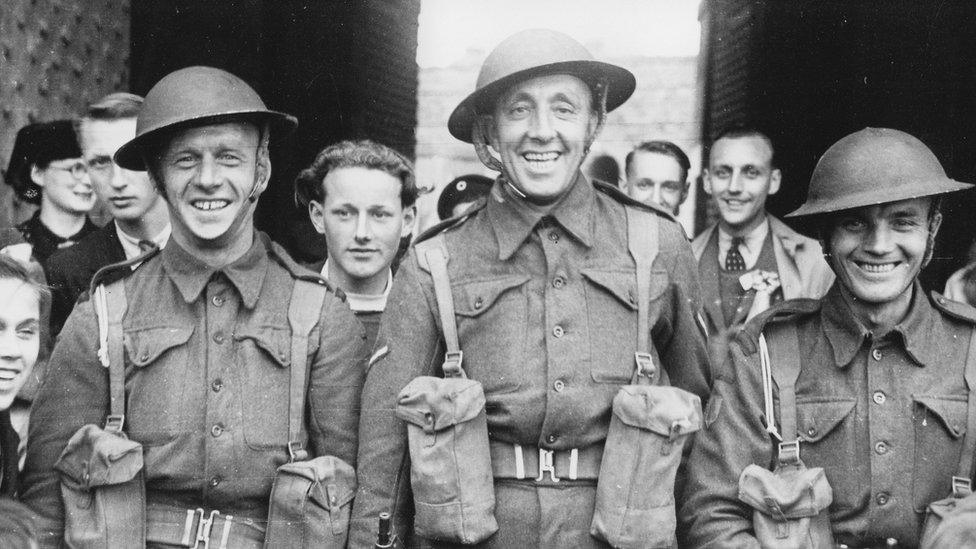
- Published6 May 2016
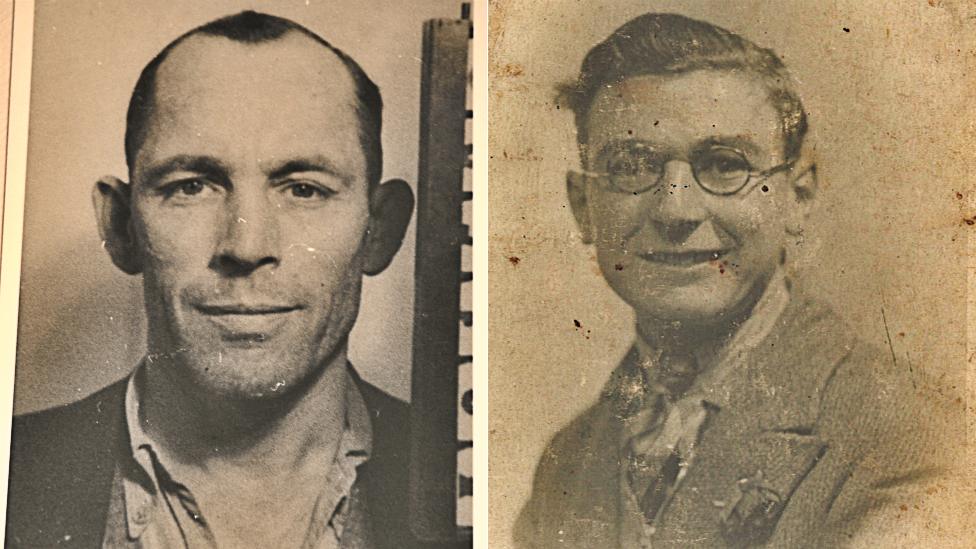
- Published3 October 2014
